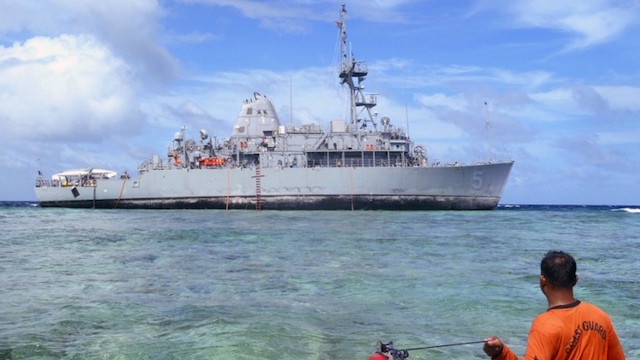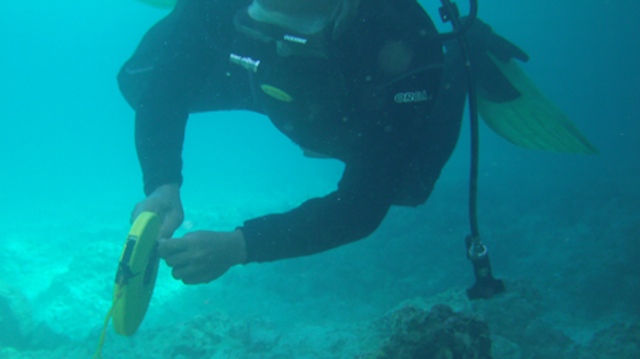SUMMARY
This is AI generated summarization, which may have errors. For context, always refer to the full article.

MANILA, Philippines – How much fine the US Navy will have to pay the Philippine government for the damage caused by the grounding of USS Guardian in Tubbataha Reef Natural Park has become a persistent question.
After President Benigno Aquino III accepted the US Navy’s apology for the incident and stressed that penalties must be paid after the minesweeper destroyed at least 1,000 sqm of reef, the question now is how much the Americans will be charged in the end.
Computing the penalties would be the final part of a long process, Transportation Secretary Joseph Emilio Abaya explained to reporters at the Ninoy Aquino International Airport Terminal 2 (NAIA-2) where he welcomed the Aquino from Switzerland.
“Clearly the logical phasing is the removal of the ship, assessment of the marine environmental impact, then we proceed to the legal claims,” he said.
Deputy presidential spokesperson Abigail Valte said in a separate interview that there is no full assessment of the damage yet but based on existing laws, the US must pay $300 (more or less P12,000) per sqm of damaged coral.
“That’s the baseline assessment of the damage,” she said in an interview with government-run radio station DzRB.
Valte nevertheless pointed out that the vessel is still waiting to be pulled out by a crane and then transferred to a barge.
“[The ship] has yet to be removed so that [amount] may change after the vessel itself is extricated…We don’t know the final figure, those are initial figures only,” she said.
The USS Guardian ran aground inside the protected area of the marine park on January 17.
Salvage costs
The Philippine and the US Navy teams will each shoulder their own expenses to salvage the vessel, Abaya said.
“The least that we are shouldering is the presence of Coast Guard assets in the area and the Navy assets,” Abaya said.
Abaya said as far as the expenses of the Philippines were concerned, “I haven’t gone through the math” but “at least you’d have here fuel expenses, water expenses, meals for our crew.”
He noted that the Americans have “probably at least 4 vessels out there. One is the command ship, the USS Mustin. It’s a guided missile destroyer. There are two US naval reserve ships out there. There are two civilian tugboats. I think the USNS Salvor arrived last Friday (January 25) and these two civilian ships coming in. I would honestly have no idea how much their expenses are at the moment,” Abaya said.
He also cited the need to provide assistance to the US Navy. “As a counterpart at sea, these are assistance that [we] would do when a naval vessel is aground or distressed in a such a situation,” Abaya noted.
 – Rappler.com
– Rappler.com
Add a comment
How does this make you feel?
There are no comments yet. Add your comment to start the conversation.